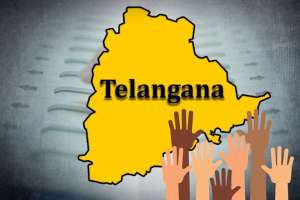Hyderabad: The political landscape of India — and Telangana in particular — has changed dramatically. The era when a few influential figures or community leaders could sway entire neighborhoods or regions with a single appeal is fading away. Today’s voters are more aware, informed, and independent than ever before. The Jubilee Hills by-election stands as a striking example of this transformation.
Gone are the days when citizens blindly followed the word of a political leader, a religious head, or a local influencer. In the age of social media, information flows faster than ever, and the public keeps a close watch on every move politicians make — from promises and performances to scandals and speeches. Every statement is recorded, shared, and analyzed within minutes.
This new awareness has empowered voters to make individual, informed choices rather than collective, emotionally driven decisions. Whether urban professionals or first-time voters, people now evaluate candidates based on developmental work, governance record, employment opportunities, and economic growth, not on personal loyalties or external pressures.
The Jubilee Hills Example
The ongoing Jubilee Hills by-election has perfectly reflected this change. Political parties, community leaders, and even religious groups have tried to mobilize support — but the response from the public has been clear: they will decide for themselves.
Despite the noise and heavy campaigning, the people of Jubilee Hills seem to be focusing on who can bring real progress — better roads, cleaner surroundings, job creation, and transparent governance — rather than who can deliver speeches or secure endorsements.
Social media platforms like X (Twitter), Instagram, and WhatsApp have become the new public forums where voters debate policies, fact-check leaders, and expose false claims. Young voters, in particular, play a major role in shaping public sentiment online, influencing even older generations to think critically before voting.
End of Blind Loyalty Politics
Earlier, it was common for entire colonies or villages to vote en masse for a candidate simply because a respected person in the community told them to. That political culture is now obsolete. The 21st-century voter values accountability over affiliation and performance over promises.
Even traditional vote banks — based on caste, religion, or party loyalty — are showing signs of erosion. The modern electorate is diverse in thought and expression, and many voters openly say, “We don’t vote for parties, we vote for progress.”
The New Political Reality
This shift presents both challenges and opportunities for political parties. The challenge lies in the end of easy influence — leaders must now work harder to earn trust through visible action and transparent communication. But it also opens up opportunities for fresh, capable candidates who genuinely want to serve the people.
Analysts believe that elections like Jubilee Hills are early signs of how future politics in Telangana — and across India — will be shaped. The real winners in this new age will be those who listen to the people, deliver results, and communicate openly.
As the by-election draws near, one message is loud and clear from the streets and social media feeds of Jubilee Hills:
“No one can influence us anymore. We know who deserves our vote.”






